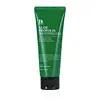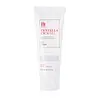What's inside
What's inside
 Key Ingredients
Key Ingredients

 Benefits
Benefits

 Concerns
Concerns

No concerns
 Ingredients Side-by-side
Ingredients Side-by-side

Aloe Barbadensis Leaf Juice 80%
Skin ConditioningPropolis Extract
Skin ConditioningPentylene Glycol
Skin ConditioningButylene Glycol
Humectant1,2-Hexanediol
Skin ConditioningGlycerin
HumectantAloe Barbadensis Leaf Extract
EmollientBetaine
HumectantWater
Skin ConditioningPortulaca Oleracea Extract
Skin ConditioningAllantoin
Skin ConditioningHouttuynia Cordata Extract
Skin ConditioningPsidium Guajava Fruit Extract
AstringentSchisandra Chinensis Fruit Extract
Skin ConditioningPerilla Ocymoides Leaf Extract
TonicAcorus Calamus Root Extract
PerfumingCitrus Paradisi Fruit Extract
Skin ConditioningCaprylyl Glycol
EmollientAcrylates/C10-30 Alkyl Acrylate Crosspolymer
Emulsion StabilisingArginine
MaskingAloe Barbadensis Leaf Juice 80%, Propolis Extract, Pentylene Glycol, Butylene Glycol, 1,2-Hexanediol, Glycerin, Aloe Barbadensis Leaf Extract, Betaine, Water, Portulaca Oleracea Extract, Allantoin, Houttuynia Cordata Extract, Psidium Guajava Fruit Extract, Schisandra Chinensis Fruit Extract, Perilla Ocymoides Leaf Extract, Acorus Calamus Root Extract, Citrus Paradisi Fruit Extract, Caprylyl Glycol, Acrylates/C10-30 Alkyl Acrylate Crosspolymer, Arginine
Centella Asiatica Extract 80%
CleansingWater
Skin ConditioningGlycerin
HumectantPentylene Glycol
Skin ConditioningArginine
MaskingAmmonium Acryloyldimethyltaurate/Vp Copolymer
Acrylates/C10-30 Alkyl Acrylate Crosspolymer
Emulsion StabilisingSodium Gluconate
Skin ConditioningChamaecyparis Obtusa Water
MaskingPropanediol
SolventButylene Glycol
HumectantEnantia Chlorantha Bark Extract
Skin ConditioningOleanolic Acid
Skin Conditioning1,2-Hexanediol
Skin ConditioningDipotassium Glycyrrhizate
HumectantMelaleuca Alternifolia Leaf Extract
PerfumingPortulaca Oleracea Extract
Skin ConditioningHouttuynia Cordata Extract
Skin ConditioningAsiatic Acid
Skin ConditioningMadecassic Acid
Skin ConditioningAsiaticoside
AntioxidantMadecassoside
AntioxidantCaprylic/Capric Triglyceride
MaskingHydrogenated Phosphatidylcholine
EmulsifyingSucrose Stearate
EmollientCetearyl Alcohol
EmollientEthylhexylglycerin
Skin ConditioningCentella Asiatica Extract 80%, Water, Glycerin, Pentylene Glycol, Arginine, Ammonium Acryloyldimethyltaurate/Vp Copolymer, Acrylates/C10-30 Alkyl Acrylate Crosspolymer, Sodium Gluconate, Chamaecyparis Obtusa Water, Propanediol, Butylene Glycol, Enantia Chlorantha Bark Extract, Oleanolic Acid, 1,2-Hexanediol, Dipotassium Glycyrrhizate, Melaleuca Alternifolia Leaf Extract, Portulaca Oleracea Extract, Houttuynia Cordata Extract, Asiatic Acid, Madecassic Acid, Asiaticoside, Madecassoside, Caprylic/Capric Triglyceride, Hydrogenated Phosphatidylcholine, Sucrose Stearate, Cetearyl Alcohol, Ethylhexylglycerin
 Reviews
Reviews

Ingredients Explained
These ingredients are found in both products.
Ingredients higher up in an ingredient list are typically present in a larger amount.
1,2-Hexanediol is a synthetic liquid and another multi-functional powerhouse.
It is a:
- Humectant, drawing moisture into the skin
- Emollient, helping to soften skin
- Solvent, dispersing and stabilizing formulas
- Preservative booster, enhancing the antimicrobial activity of other preservatives
Acrylates/C10-30 Alkyl Acrylate Crosspolymer is a synthetic polymer. It is used to thicken and improve the texture of products. Due to its properties, it can prevent water and oil ingredients from separating.
Arginine is an amino acid that is important for human development. Your body uses is it to produce hair keratin and skin collagen.
As a cosmetic ingredient, Arginine has antioxidant properties and can also help repair damaged skin. This ingredient is derived either synthetically or from animals.
Arginine isn't fungal acne safe when used in the presence of other lipids (fats, fatty acids, oils, esters, etc). Oils and fats occur naturally within the skin, so take caution when using Arginine if you're prone to fungal acne.
Learn more about ArginineButylene Glycol (or BG) is used within cosmetic products for a few different reasons:
Overall, Butylene Glycol is a safe and well-rounded ingredient that works well with other ingredients.
Though this ingredient works well with most skin types, some people with sensitive skin may experience a reaction such as allergic rashes, closed comedones, or itchiness.
Learn more about Butylene GlycolGlycerin is already naturally found in your skin. It helps moisturize and protect your skin.
A study from 2016 found glycerin to be more effective as a humectant than AHAs and hyaluronic acid.
As a humectant, it helps the skin stay hydrated by pulling moisture to your skin. The low molecular weight of glycerin allows it to pull moisture into the deeper layers of your skin.
Hydrated skin improves your skin barrier; Your skin barrier helps protect against irritants and bacteria.
Glycerin has also been found to have antimicrobial and antiviral properties. Due to these properties, glycerin is often used in wound and burn treatments.
In cosmetics, glycerin is usually derived from plants such as soybean or palm. However, it can also be sourced from animals, such as tallow or animal fat.
This ingredient is organic, colorless, odorless, and non-toxic.
Glycerin is the name for this ingredient in American English. British English uses Glycerol/Glycerine.
Learn more about GlycerinHouttuynia Cordata Extract is more commonly known as Heart Leaf, Fish Mint, or Chameleon plant.
The components found in Heart Leaf give it antioxidant, hydrating, antimicrobial, and anti-inflammatory properties.
Heart Leaf is rich in flavonoids such as quercetin, apigenin, and more. It also contains polysaccharides, the most common type of carbs in food.
Flavonoids have been shown to be effective antioxidants. They help neutralize free-radical molecules. Free-radical molecules are unstable molecules that may damage our skin cells and DNA. The flavonoids in Heart Leaf also help soothe the skin.
Polysaccharides are naturally found in our skin. They play a role in hydrating and repairing the top layer of skin. The polysaccharides in Heart Leaf help moisturize our skin.
Studies show decanoyl acetaldehyde, a component of Heart Leaf oil, is effective at killing bacteria.
The name 'Fish Mint' comes from the herb's natural fishy smell. Is is native to southeast Asia and used throughout the continent for traditional cooking and medicine.
Learn more about Houttuynia Cordata ExtractPentylene glycol is typically used within a product to thicken it. It also adds a smooth, soft, and moisturizing feel to the product. It is naturally found in plants such as sugar beets.
The hydrophilic trait of Pentylene Glycol makes it a humectant. As a humectant, Pentylene Glycol helps draw moisture from the air to your skin. This can help keep your skin hydrated.
This property also makes Pentylene Glycol a great texture enhancer. It can also help thicken or stabilize a product.
Pentylene Glycol also acts as a mild preservative and helps to keep a product microbe-free.
Some people may experience mild eye and skin irritation from Pentylene Glycol. We always recommend speaking with a professional about using this ingredient in your routine.
Pentylene Glycol has a low molecular weight and is part of the 1,2-glycol family.
Learn more about Pentylene GlycolThis extract comes from Purslane, a succulent. It has anti-inflammatory, antioxidant, and hydrating properties.
Purslane is very nutritious. It contains omega-3 fatty acids, NMFs, many vitamins, minerals, and antioxidants. The vitamins found in purslane include: Vitamin C, Vitamin A, and Vitamin E.
Fun fact: Purslane is a succulent with an extensive habitat. It is used in traditional Korean medicine to treat irritated skin.
Nowadays, purslane is becoming a superfood due to its highly nutritious content.
Learn more about Portulaca Oleracea ExtractWater. It's the most common cosmetic ingredient of all. You'll usually see it at the top of ingredient lists, meaning that it makes up the largest part of the product.
So why is it so popular? Water most often acts as a solvent - this means that it helps dissolve other ingredients into the formulation.
You'll also recognize water as that liquid we all need to stay alive. If you see this, drink a glass of water. Stay hydrated!
Learn more about Water